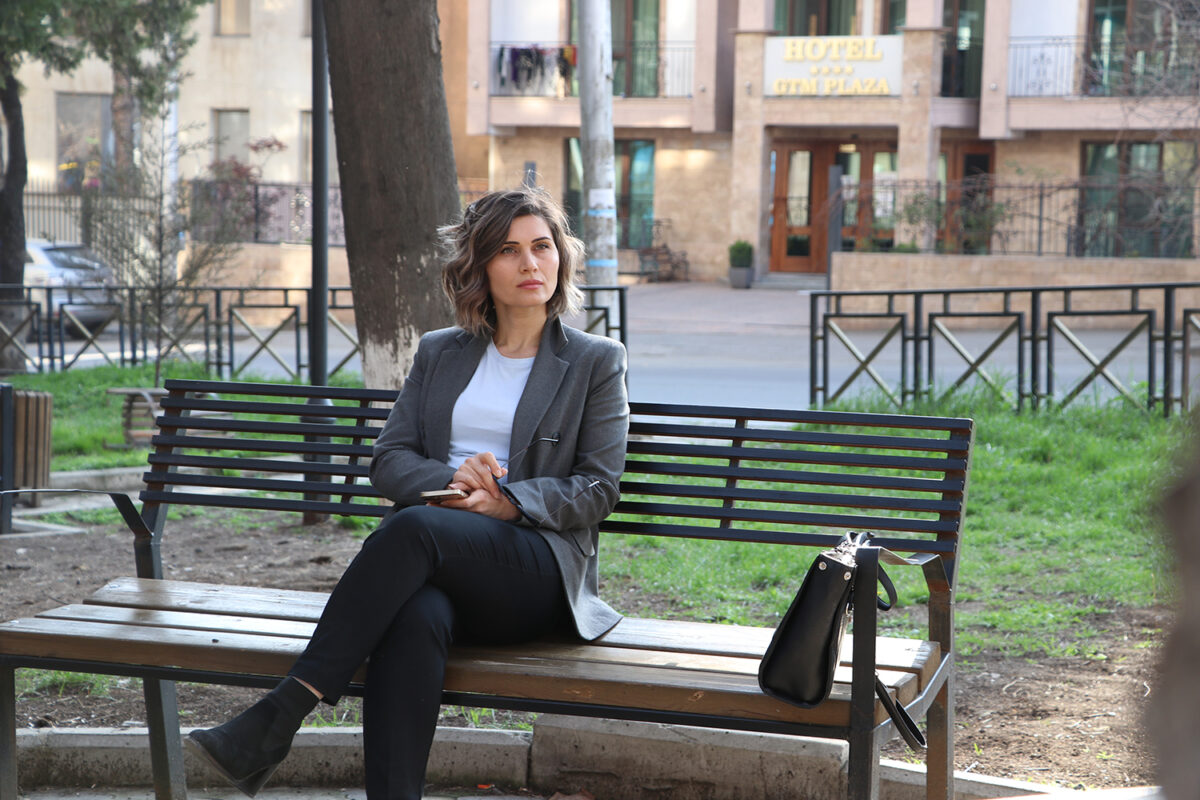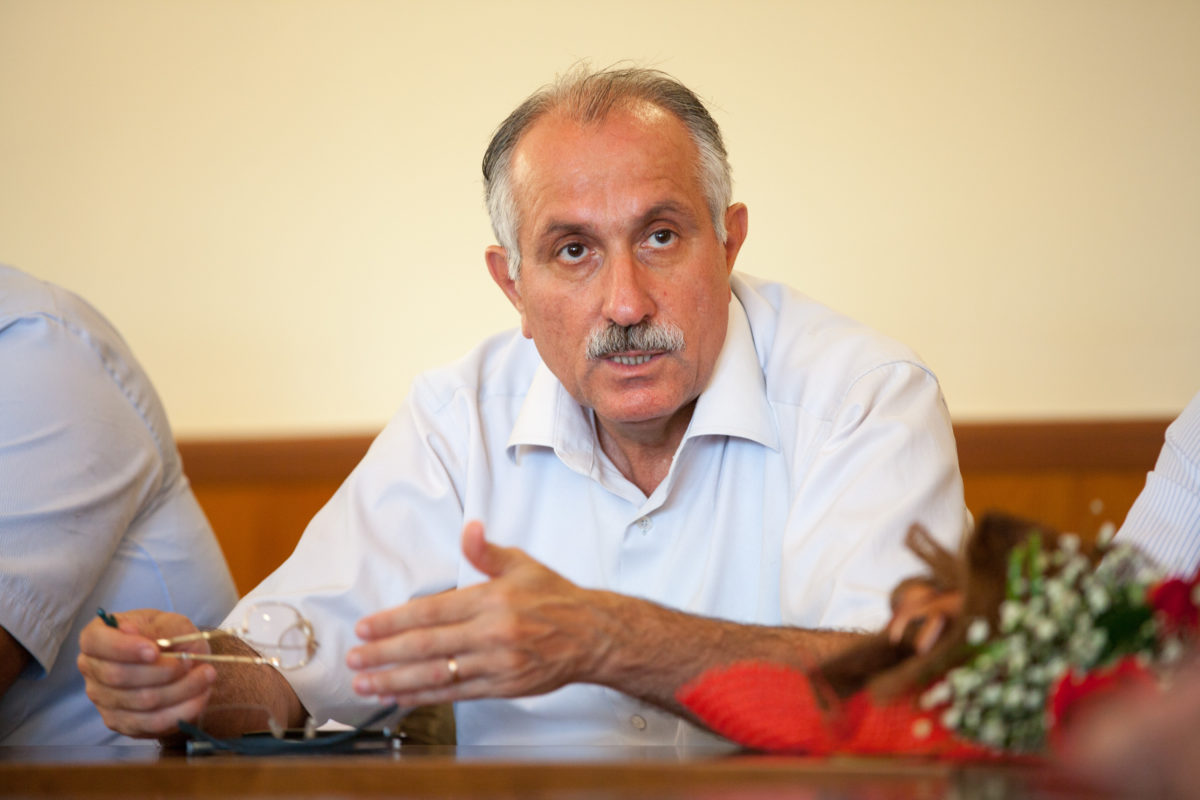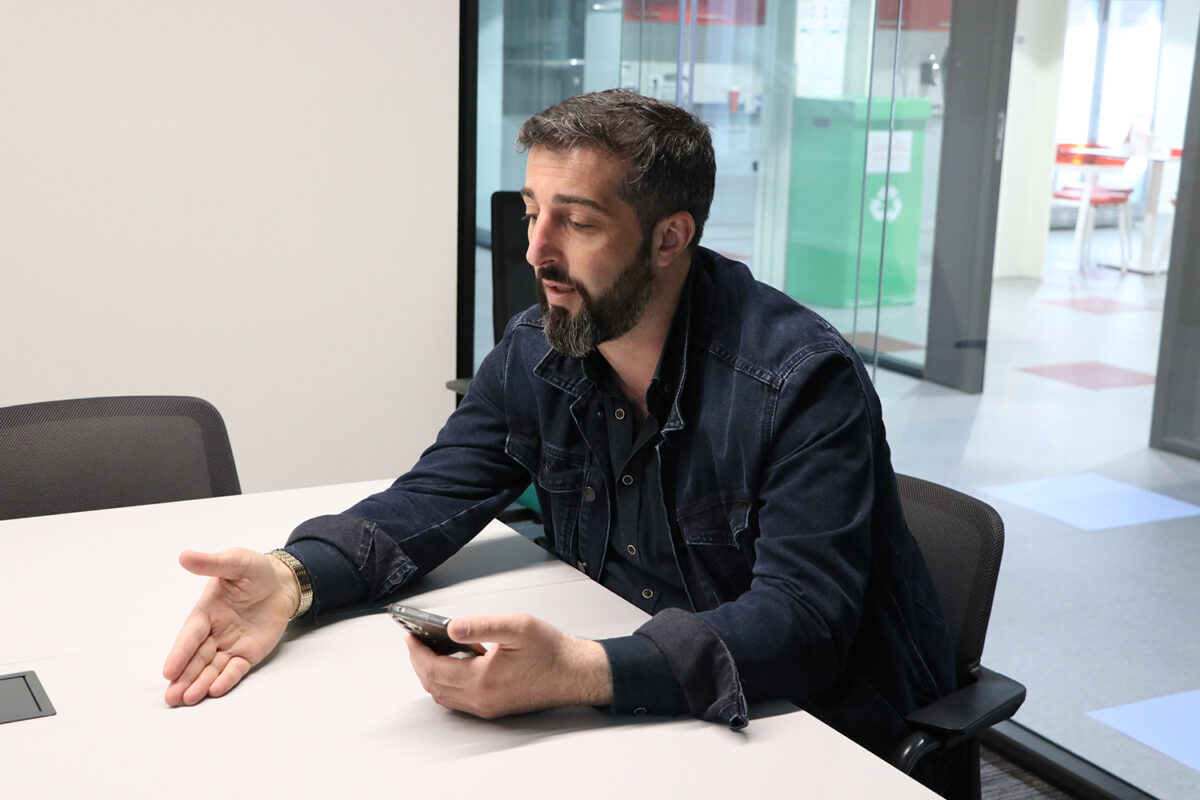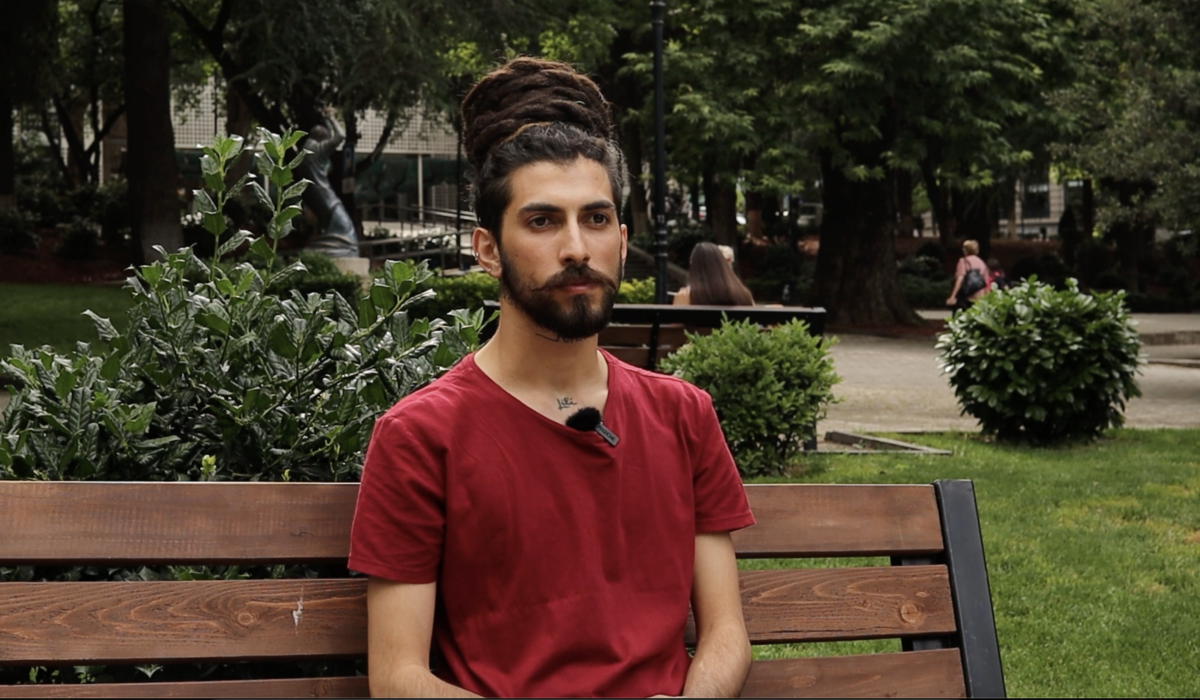“They Carry Out the Order”: How and Why Pro-Government Media in Azerbaijan Supported the Adoption of the “Russian Law” in Georgia

On May 14, a law on “transparency of foreign influence” was adopted in Georgia. This caused serious dissatisfaction within the country and beyond its borders. Since April 15, tens of thousands of people in Tbilisi have been protesting against adopting the law introduced by the ruling party “Georgian Dream”. The law declares all independent organizations and media receiving more than 20% of their funding from abroad as “organizations implementing the interests of foreign states”. This closely mirrors the Russian law on “foreign agents”, which the Russian authorities have used for many years to exert pressure on independent media and human rights organizations. Therefore, people in Georgia refer to the law as “Russian”.
Ethnic Azerbaijanis and even Azerbaijani activists who found refuge in Georgia also opposed the law. Meanwhile, pro-government Azerbaijani media actively supported the bill. Meydan TV explains why some were against it while others were in favor.
“This can be seen as a kind of support being provided to the Georgian authorities from Azerbaijan.”
“West interferes in the political process in Georgia”, “Secret operation of the West in Georgia – Why is Tbilisi thrown into the fire?”, “Agents of the West unleash war in Tbilisi: Is Russia and Turkey taking action?”, “West threatens Tbilisi with revolution”, “Tbilisi becomes a ‘battlefield’: protesters plan coup attempt”, “West avenges expelled Caucasus? – Hidden sides of the game involving Georgia”.
These are just a tiny part of the materials that were published on their YouTube platform during the protests in Georgia by well-known pro-government media such as AZTV, Real TV, and ARB.
One of the first to notice such publications was an ethnic Azerbaijani in Georgia, activist Samira Bayramova, who actively participated in actions against the “Russian law”. On her Facebook page, she posted a video where she attempted to protest against the report of an AzTv correspondent. In the video, Samira calls the journalist a liar and provocateur, and addressing Azerbaijani society, asks not to believe what he says. According to Samira’s video, the correspondent says on camera that the participants in the protests in Georgia “act on the instructions of the West and are funded by the West.”
According to Samira, this is not the first time AzTv has aired such biased materials. That is why she decided to express her grievances to the correspondent in person.

“Overall, as soon as these protests began, we’ve been regularly monitoring the media. On one hand, we gather information ourselves, and on the other, it’s interesting to see how the media are covering the events in Tbilisi. This is very important for us, especially for the Azerbaijani community. Most of them don’t speak Georgian and therefore don’t fully grasp the significance of these processes.
That’s how I stumbled upon the material from AzTv. It’s hard to understand where all this aggression, hatred, and sarcasm is coming from. If they are unaware, we can explain why this law in Georgia is called ‘Russian’, what Georgia means to the West, why minorities want Georgia to join the European Union… We have notified AzTv about this several times. Later, we publicly criticized them. But, unfortunately, they continued in the same manner.”
Mehman Aliyev, Director of the Turan News Agency and media expert, in conversation with Meydan TV, stated that Azerbaijani TV channels always actively cover events with an anti-Western theme and do so from the perspective of Azerbaijan’s government interests.
“In recent times, our government has increasingly taken an anti-Western position and does not hide it. Therefore, to create and maintain such sentiments in society, they cover events of this nature from an anti-Western standpoint. And, quite logically, they support steps taken against the West by other governments. This can be seen as a kind of support provided to the Georgian authorities from Azerbaijan.”
Samira Bayramova agrees with this view of support. She believes that due to friendly relations and strategic ties with Georgia, Azerbaijani media are also used for strategic purposes by Azerbaijani authorities:
“Perhaps this is a kind of support. Because Georgian state channels have the same narrative. They also engage in provocation and misinformation, distort and twist the essence of events.”
According to Mehman Aliyev, Azerbaijani media and channels are instruments of propaganda.

“They are controlled by the authorities and therefore cannot and will not disseminate independent, objective, and pluralistic information. They carry out orders. Theoretically, of course, the media should be objective, tell the truth, and provide different opinions. The media should not interfere in events happening abroad and take someone’s side. That’s how it should be in theory. But, I repeat: our media are under control, they follow orders and operate within the framework of these orders, based on their content.”
“This government does not wish for our development.”
Another ethnic Azerbaijani, activist, and leader of the Garachepa Public Center, Tozu Gulumamedli, believes that the adoption of this law will have a particularly strong impact on ethnic minorities in Georgia:
“Ten years ago, you could say no one spoke about our needs. Our youth were not visible anywhere. But today, most young people talk about the needs of the Azerbaijani community, most of the youth who can be called successful, are representatives of NGOs. Even people now in the government of Georgia, including parliament deputies, all come from non-governmental organizations. And if we face any problem today, if our rights are violated, once again we rely only on NGOs. So, for minorities, the existence of non-governmental organizations is doubly important. We are more vulnerable here, our rights are violated more often, due to language and other barriers. That’s why NGOs are vital for us.”
Ethnic Azerbaijani in Georgia, activist, and journalist Jayhun Muhamedli also opposes the “Law on Transparency of Foreign Influence”:


“At the moment, it is European and international organizations that play a role in the development of ethnic Azerbaijanis and youth living in Georgia. The Georgian government has not done anything for this so far. Whether it’s religious or national minorities, today there are programs in the regions where lawyers defend people’s rights for free and, if necessary, confront the authorities. And if today there are a couple of activists whose voices are heard, they are products of these organizations. You clearly understand that this government does not wish for our development. Whether Azerbaijani, Armenian, or Russian, it doesn’t matter; this law shows that the system does not want the development of ethnic minorities.“
According to Tozu Gulumamedli, biased information published in Azerbaijani media, especially regarding “Russian law,” can create incorrect impressions among the Azerbaijani community in Georgia. Unfortunately, many ethnic Azerbaijanis still have poor command of the Georgian language. Moreover, they have fewer opportunities to obtain information from alternative sources.
“Currently, 70-80% of Georgia’s population gets information from television, and all TV channels are in Georgian,” says Tozu Gulumamedli. “Accurate information is predominantly available on the internet, but not everyone has access to the internet. Plus, there are very few news websites that publish reliable information. Because of all this, the level of awareness among the Azerbaijani community about the ‘Russian law’ is very low.”
“I think I won’t be able to feel free and comfortable here.”
Activists from Azerbaijan who sought refuge in Georgia due to persecution by Azerbaijani authorities have also opposed the law. One of them is Lili Nazarov.
In 2020, Lili, who spoke out against the war between Azerbaijan and Armenia, faced pressure as a result: he received threats on social media and was summoned for questioning:
“On November 2, they called me and summoned me to the State Security Service. On November 4, I went there with a lawyer. They started questioning me about every post on social media. They asked: ‘Why are you against the war?’, ‘What don’t you like about Ilham Aliyev?’ I lost friends during the war. 99% of Azerbaijan’s population supported the war. And this pressure from the state, deteriorating personal relationships – all of this led to suicidal thoughts. Just a few days after being summoned to the State Security Service, on November 7, I left the country. And I haven’t returned since.”
Considering Georgia a safer place, he moved to Tbilisi. Lili actively participated in protests under the slogan “No to the Russian law” and says that after the adoption of this law, he no longer feels safe in Georgia:
“I have been living and working in Georgia for about two years. But I’m already considering leaving here too because there is a turn towards authoritarianism here as well. The ‘foreign agents’ law was adopted, they are going to adopt an LGBT law… All of this makes my stay here dangerous. I don’t think I can feel free and comfortable here.”
Lili notes that he also noticed how events in Georgia are covered by pro-government Azerbaijani media.


“The current repression in Azerbaijan demonstrates their intent to completely eradicate the concept of freedom of speech and free media in the country. They aim to control events occurring in the region and present them in a favorable light for themselves. With few independent media outlets left in Azerbaijan, state-owned media seek to take over. They come here and spread disinformation. The persecution of independent media vividly illustrates that the Azerbaijani government wants to fully manipulate information and convey only its position.”
Feeling more vulnerable in Georgia, Lili was compelled by the adoption of another law:
“Just like in Russia, immediately after adopting the ‘foreign agents’ law in Georgia, they proposed an anti-LGBT law. These two laws target civil society and the LGBT community. By restricting the activities of organizations working with socially vulnerable groups, the government intends to control them and their finances, contribute to the alienation of the LGBT community, criminalize and isolate them from society, and force them to live under constant pressure and threat.”
The law is in effect
Despite President Salome Zourabichvili of Georgia vetoing the law on May 18, the Parliament overturned the veto on May 28, and on June 3, Parliament Speaker Shalva Papuashvili signed the law. Thus, the controversial “foreign agents” law, which had been the subject of protests for months, came into force.
Meanwhile, Lili Nazarov is currently seeking a safer country to live in:
“I communicate here with Azerbaijani, Georgian, and international activists. During the protests, we tried to attend together. Every day, our conversations revolved around the events taking place. In recent weeks, especially when meeting with Azerbaijanis, we have been trying to find some way out, to figure out where to go now. Because this law is intended to control civil society, control the capital of civil society, control where it is funded from, and what activities it conducts.”
Supported by Media Set.

